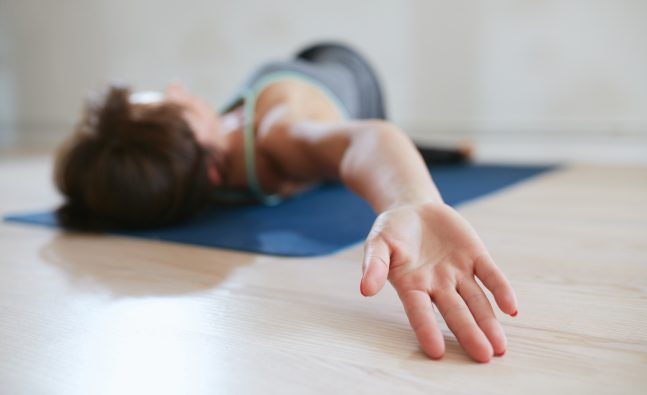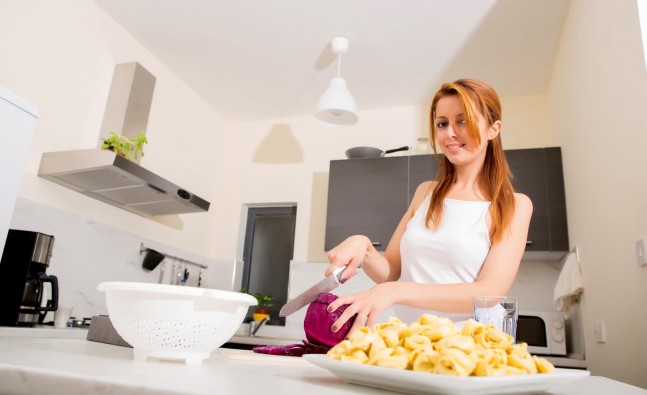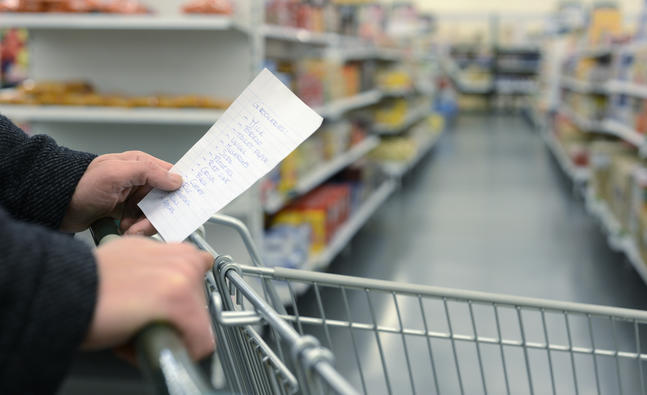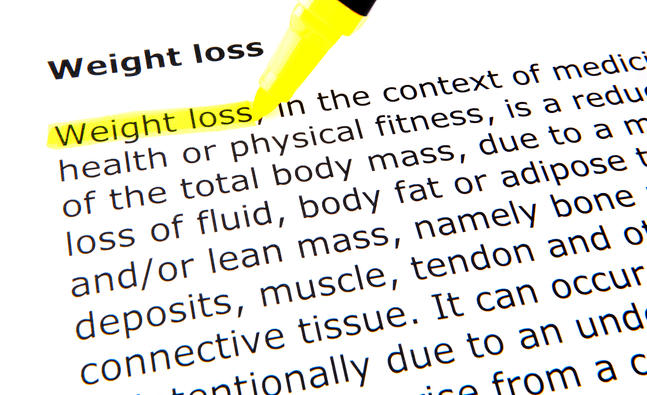How to Use a Weight-Loss App So You Actually See Results
If you're on a mission to drop pounds, chances are you've downloaded one of the bajillion weight-loss apps that track your calories and activity—but a recent study suggests it could end up being kind of worthless.
The study, published in the journal Obesity, found that people who depend solely on weight-loss apps to slim down typically aren't any more successful at losing weight than people who just receive pamphlets on exercise and nutrition. In fact, the study participants who used apps only lost two pounds over two years.

To find out what could be going wrong here, we spoke with experts to find out how you may be sabotaging your own weight-loss app success—and how to fix that.
Mistake #1: You’va Got All-Or-Nothing Tracking Habits
It's kind of a no-brainer: Logging your stats regularly helps you keep up your healthy habits. But finding the motivation to open that little app and crunch the numbers can feel a lot harder than it sounds. After all, you're already trying to choose almonds over candy and fitting gym time into your day, there's only so much willpower that a girl can use in 24 hours.
Before you face-palm for all of the foods you forgot to track, let's get one thing out of the way: You've got to let go of the full-speed-ahead mentality, says Glennis Coursey, the lead coach at MyFitnessPal. It's okay to ease into the habit of tracking over time. “Start by just focusing on breakfast, and then build in more meals from there, she says. It might take a few days or a few weeks to get in the habit of tracking a meal—just go at your own speed.
Another key to weight-loss-app success is to log your meals right before or right after you eat, says Jess Cording, a registered dietitian. This helps ensure you're not forgetting anything you ate, she says. You can also set an alert on your phone to remind you to jump into your app of choice or download an app that has a reminder feature to ping you during they day.
Long before weight-loss apps existed, people were turning to crazy concoctions and strange strategies to lose weight. Watch this video to see some of the nuttiest weight-loss trends throughout history:
You’re Underestimating Portion Sizes
Sure, you just had a muffin and a latte as your mid-morning snack, but chances are that delish pastry wasn't just one serving, says Trinh Le, a registered dietitian at MyFitnessPal. This really messes with how we log it into a calorie counter, she says. The fix? Use an app that offers a visual portion size guide, like Cals & Carbs, or keep a wallet-sized portion guide until you learn key serving sizes.
And instead of guessing how many calories there are in your favorite coffee drink or burrito bowl, Google it. “There’s a lot of nutrition information available online, so check out the stats for your go-to meals at chain restaurants,” says Cording.
You’re Keeping Your Goals a Secret
While you might shy away from blowing up your friends' newsfeeds with your weight-loss plans, not having any accountability might make you more likely to fail. “We know that people who add friends on MyFitnessPal are two times more likely to lose weight,” says Coursey. Having friends on the app who follow your progress creates a support system and motivates you, she says.
Many apps even allow you to set up friendly competitions with fellow users to create healthy habit challenges like tracking steps-per-day or weekly trips to the gym. If you want professional accountability, some weight-loss apps, like Noom Coach, offer a wellness coach who checks in on your progress and suggests tweaks to your diet or workout based on your log.
You Lie
You logged that cookie you had at lunch, but what about the second and third you grabbed before bed? While your numbers might look pretty great by the end of the day, being honest about what you're really eating is key for weight loss success, says Cording. If you don't identify your barriers and patterns, it makes it harder to change, she says.
Instead of viewing the log as a list of your food failures, see it as a tool to understand how food affects you. So instead of tracking not just how many calories you consumed, think about what might be triggering the headache you always get at 3 p.m. or the sluggish feeling you get on Bagel Wednesday. You can learn about how your body reacts to the things you eat or drink, says Le. The point of tracking your activity and meals isn't just to guilt yourself into eating better and exercising, you should use this data to understand your body and make choices that help you feel good.
-
New recipes are key to weight loss
-
15 Ways to Feel Lighter By The End of Today
By Leta Shy for POPSUGAR Fitness Slimming down takes time and d
-
Drink water and lose weight
-
The 25 WORST Diet Tips Ever
This article was written by Stephanie Castillo and repurposed with per
-
What the Eco-Atkins diet could do for your heart and waistline
-
Little changes can give big results
- DON'T MISS
- 15 Vegetables that burn calories
- Not losing enough weight? 5 Sneaky kitchen ingredients that sabotage you
- How to Turn Off Your Weight Gain Hormones
- Pay attention to serving sizes
- Something fishy for breakfast
- Burn calories stretching those pecs
- Reduce fat by eating whole grains
- Should you be counting calories for each workout?
- Ups and downs for steady weight loss
- Why eating breakfast can help control your weight




